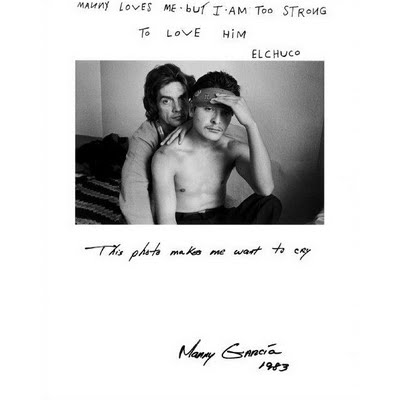Jim Goldberg
Sunday, 25 October 2009
Work from Rich and Poor.
“Rich and Poor confronts the myth of the American dream with the harsh economic reality of the American class system. Yet this documentary is more complex than that, for by including the protagonists’ voices in the form of text on his images Goldberg represents not just the polarity of class but the particularity of human experience.
Intimate portraits taken in private spaces these pictures could only have been produced with a level of trust built up over time. Goldberg was invited into his subjects’ homes, and in some cases their bedrooms, and whether or not their gaze meets the camera, the addition of their handwritten text offers us a glimpse not just into their lives, but into their psyches. Each black-and-white picture portrays an individual from one of the two economic groups often with a member or members of their immediate family. The individual narratives are hugely compelling. On a portrait of an evidently affluent older couple, the man has written words almost devoid of emotion: ”My wife is acceptable. Our relationship is satisfactory.” She observes that he is ”a private person who is not demonstrative of his affection” and that ”I accept him as he is.” Despite the evident material comforts, one would find it hard to view this as a happy marriage. In another, taken in a simple, slightly dirty room, the words on the portrait of a shirtless, bearded, man and his small son read: ”I love David. But he is too fragile for a rough father like me.” An equally simple statement, but one dense with emotion.
More exposing than a nude portrait, Goldberg’s approach is however essentially collaborative – not a relinquishing of authorship (these texts are still the result of the photographer’s carefully formulated questioning) but an attempt to solve the problem of creating a balanced documentary. Goldberg confounds simplistic stereotypes of rich or poor by engaging the viewer with their essential humanity.” – via Magnum



